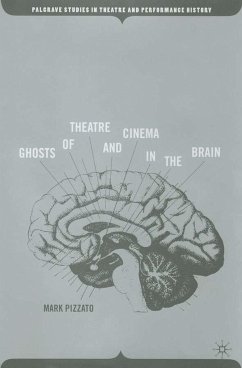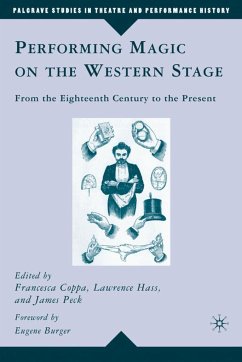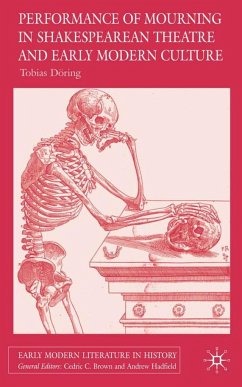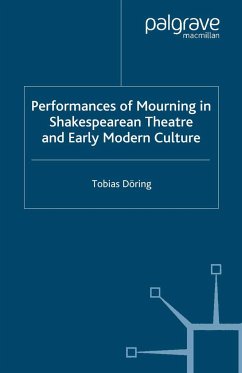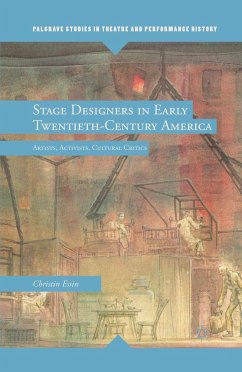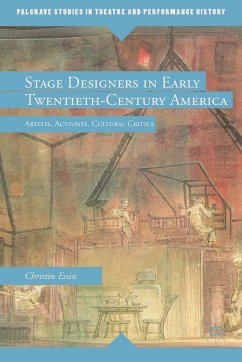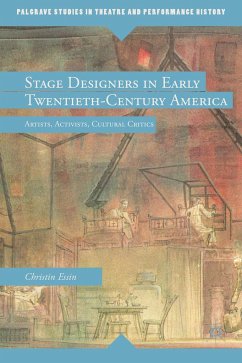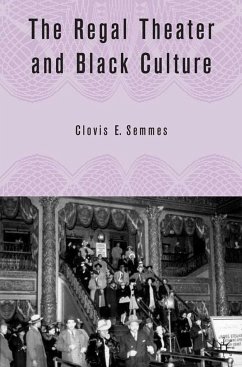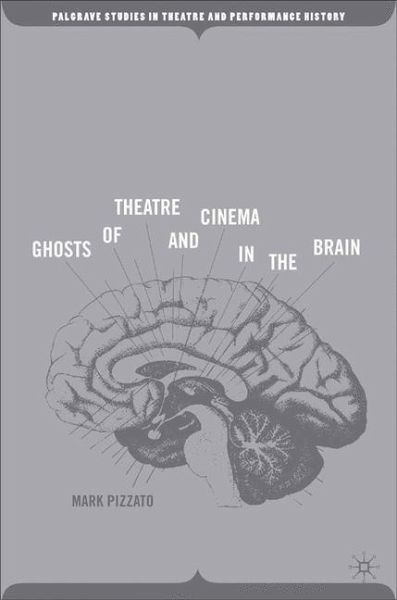
M. Pizzato
Broschiertes Buch
Ghosts of Theatre and Cinema in the Brain
Versandkostenfrei!
Versandfertig in 6-10 Tagen
Weitere Ausgaben:

PAYBACK Punkte
19 °P sammeln!





Pizzato focuses on the staging of Self and Other as phantom characters inside the brain (in the 'mind's eye', as Hamlet says). He explores the brain's anatomical evolution from animal drives to human consciousness to divine aspirations, through distinctive cultural expressions in stage and screen technologies.
MARK PIZZATO is Professor of Theatre and Film at the University of North Carolina-Charlotte, USA. He is the author of Edges of Loss: From Modern Drama to Postmodern Theory (University of Michigan, 1998), Theatres of Human Sacrifice: From Ancient Ritual to Screen Violence (SUNY, 2005), Ghosts of Theatre and Cinema in the Brain (Palgrave, 2006), Inner Theatres of Good and Evil: The Mind's Staging of Gods, Angels and Devils (McFarland, 2011), and Beast-People Onscreen and in Your Brain (Praeger, 2016). Pizzato also co-edited, with Lisa Perdigao, Death in American Texts and Performances (Routledge, 2016).
Produktdetails
- Palgrave Studies in Theatre and Performance History
- Verlag: Palgrave Macmillan / Palgrave Macmillan US / Springer Palgrave Macmillan
- Artikelnr. des Verlages: 978-1-349-53343-5
- 1st ed. 2006
- Seitenzahl: 336
- Erscheinungstermin: 23. Dezember 2015
- Englisch
- Abmessung: 216mm x 140mm x 19mm
- Gewicht: 423g
- ISBN-13: 9781349533435
- ISBN-10: 1349533432
- Artikelnr.: 45082417
Herstellerkennzeichnung
Palgrave Macmillan
Tiergartenstr. 17
69121 Heidelberg
ProductSafety@springernature.com
"A fascinating analysis, based on research in psychoanalysis, evolutionary psychiatry, and neuroscience, of ghostly presences in our minds and brains and of how theater, film, and television function to activate these ghosts and transport them from one brain to another. This book marks a quantum leap in our understanding of the crucial role that dramatic performances can play in the intersubjective processes through which human subjects are constituted, maintained, and transformed." - Mark Bracher, Director, Center for Literature and Psychoanalysis, Kent State University
"Mark Pizzato, who long ago slipped through the mirror stage of Lacan into the cellarage of the theater, is now ghosting that form, or being ghosted by it, with
"Mark Pizzato, who long ago slipped through the mirror stage of Lacan into the cellarage of the theater, is now ghosting that form, or being ghosted by it, with
Mehr anzeigen
cinema too on the brain. Still drawn in the mind's eye to images of transcendence, what he perceives on the actor's body, in the era of the virtual, is augmented now by resources from neurology, cognitive science, and evolutionary psychology,and with all that a transhistorical vision. Given the ancient dreams of immortality that possess him, there is nothing in that vision of a readymade historicism. As he moves from stage to screen, gods and ghosts going with him, surreptitiously in communion with images of the Self, he has written another book with extraordinary specular scope, moving as it does, too, from art to entertainment, then the other way around. Yet, whatever he's examining, or obdurately looking at, it's the shared mortality of actor and spectator that really cuts to the brain, as with the lunatic Lear on the heath, who smells of mortality. To say the least, with all its neuroscientific, ontological range, this is a heady, invaluable book, in which though Pizzato goes avidly to the movies theater materializes (as it does in theory) wherever you look." - Herbert Blau, Byron W. and Alice L. Lockwood Professor of the Humanities, University of Washington
Schließen
Für dieses Produkt wurde noch keine Bewertung abgegeben. Wir würden uns sehr freuen, wenn du die erste Bewertung schreibst!
Eine Bewertung schreiben
Eine Bewertung schreiben
Andere Kunden interessierten sich für




